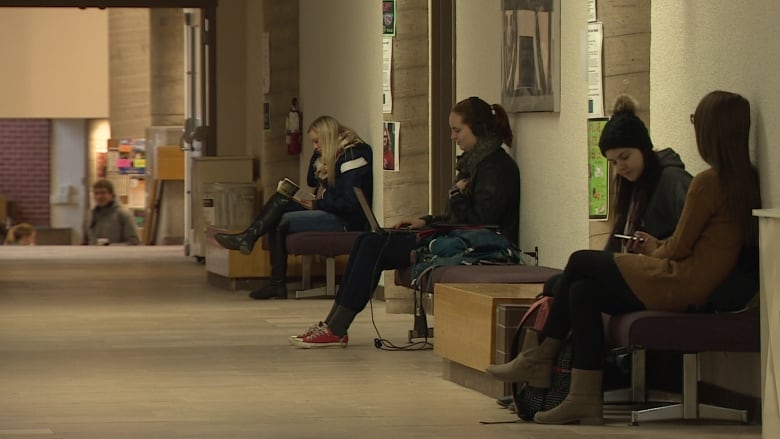Maritime universities see plunging enrolment in humanities programs
Across the region, there are almost half as many students majoring in subjects such as English, history

Molly Labenski can't believe how many of her friends don't know who Karl Marx is.
"That just seems insane," she said.
The fourth-year English honours student at Acadia University in Nova Scotia may be surprised her friends are so ignorant of the 19th century German revolutionary socialist — but university enrolment numbers may suggest one reason.

Labenski is part of a dwindling cohort taking general arts and humanities courses at universities in the Maritimes.
The marked enrolment decline outpaces the overall drop in student numbers — by a few percentage points — across the region.
The number of full-time undergraduates majoring in humanities is down 45 per cent over the past decade. When those numbers are combined with general arts students — people who haven't declared their arts major yet — it's a 39 per cent decrease across the region according to data provided by the Maritime Provinces Higher Education Commission.
The humanities, including literature, languages, history and philosophy, were once central to many universities. As part of her studies, Labenski has taken philosophy, sociology, French and she's even earning a major in biology, all part of what she calls a "more diverse education."
"[You learn] to form your own opinions and to be really clear and concise with your own thoughts."
General arts and humanities decline

See a graph of humanities enrolment at Maritime universities.
New approaches
The declining number of students taking some arts and humanities courses is changing how they are offered and how universities market their arts departments.
- Atlantic Canada university undergrad enrolment drops for 3rd straight year
- A science degree may land you a job, but an arts degree holds it
- Liberal arts grads earn about $10K less than science grads
On some campuses, faculties have merged. History and classics are now blended at Acadia University. Mount Saint Vincent University in Halifax has dropped linguistics and German courses.
At Cape Breton University, where there are half as many general arts and humanities students as there used to be, the numbers of classes offered for individual courses has been dropping steadily.
Dale Keefe, the university's vice president academic, said if enrolment continues shrinking, some departments will cease to exist.
"We still offer the same programs we have for the last 10 years, it's just that those programs are getting smaller and smaller every year," he said.
Arts perceived as useless, even if they're not
It's a decline university administrators say is troubling and shows they've done a poor job of countering a popular narrative — one they frequently encounter in prospective students and parents — that humanities are useless and don't lead to jobs.
Jeff Hennessy, the acting dean of arts at Acadia University who holds chemistry and music undergraduate degrees, says it's a "worrisome" trend.
He says schools speak with parents who want to ensure their children — and their money — get the best results.
But Hennessy says students are more likely to be successful if they discover an area they care about, and small universities can allow students coming out of high school to experiment with a variety of fields.

Some schools are shifting some course offerings based on enrolment trends. Mount Saint Vincent University has increased its communications courses and now offers Mandarin. Many schools have boosted programs due to an influx of international students.
High-profile BA holders
However, Hennessy says the answer isn't in catering the curriculum to specific jobs.
The better option, in his mind, is equipping young people with skills that they'll be able to adapt to careers.
One case he points to is Prime Minister Justin Trudeau's cabinet, where almost half of the members hold a bachelor of arts degree.
"Being able to write effectively, being able to lead — either leading groups of people or leading with the things you write — I think the future leaders are going to be people who are probably going to have this kind of background and education," Hennessy said.

With files from Rachel Ward

